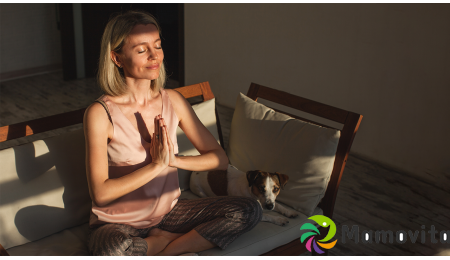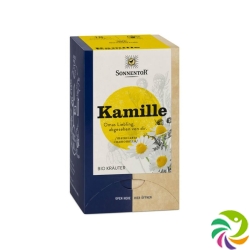Top Relaxation Techniques to Reduce Anxiety Naturally

Anxiety has a good sized effect on each of our mental and physical health. This regularly manifests as constant worry, restlessness, and a sense of imminent doom, mainly to physical symptoms consisting of a racing heart, muscle anxiety, and fatigue. Over time, chronic anxiety influences the body, contributing to conditions which include insomnia, weakened immune characteristic, and cardiovascular issues.
One of the most effective natural approaches to lowering anxiety is using rest techniques. These techniques, which include practices such as deep respiration, meditation, and muscle relaxation, can assist calm the thoughts, lessen stress levels, and promote a sense of calm.
Causes and Triggers of Anxiety
Anxiety may be triggered with the aid of a range of things, ranging from normal stresses to extensive life changes. Common causes of anxiety consist of:
- Stress: High degrees of stress, whether from work, relationships or monetary troubles, can cause anxiety. When stress becomes all-consuming, it may result in steady worry and fear, which are key to anxiety.
- Life changes: Major lifestyle changes such as moving, converting jobs, or losing a loved one can also cause anxiety. These changes often deliver uncertainty and interfere with the ability to cope, leading to feelings of anxiety.
- Health issues: Physical health problems, in particular those associated with continual disorder or ache, can make contributions to anxiety. Fear of worsening signs and symptoms or uncertainty about the future can increase anxious feelings.
- Environmental factors: Factors such as residing in a chaotic or dangerous environment, exposure to negative news, or even environmental changes including natural disasters can increase anxiety degrees.
It is crucial to apprehend the distinction between anxiety as a natural response and chronic anxiety issues. Anxiety is a normal and often healthy reaction to stress or hazard that signals us to potential threats and prepares us to respond. However, whilst anxiety becomes constant, all-eating, and out of proportion to the current situation, it may become a chronic anxiety disease. Chronic anxiety interferes with normal existence, affecting a person's ability to function normally.
Natural Relaxation Remedies
Herbs to Reduce Anxiety
Herbal teas have long been used as natural rest aids that assist calm the thoughts and body. Certain herbs are in particular effective in lowering anxiety because of their calming and sedative effects. For example, Sun Gate Chamomile tea is well known for its capability to relieve stress and promote sleep, making it a popular desire for those trying to calm nerves obviously. Similarly, lavender tea is thought for its relaxing homes and might help relieve symptoms of anxiety.
Other useful herbs include valerian root, which acts as a natural sedative, and lemon balm, that's often used to reduce anxiety and enhance mood. These teas have a gentle impact on the nervous system, help lessen stress stages and promote an experience of calm. For those seeking out natural alternatives to anxiety medications, natural teas are an easy and effective choice to comprise into your daily routine.
In addition to their calming effects, herbal teas are a pleasant way to relax, creating a ritual that encourages relaxation. Pay attention to Holle Fruity Flamingo natural fruit tea, which consists of completely natural herbs, apple and anise. Thanks to its sweet and fresh aroma, it is an excellent thirst quencher for youngsters from 3 years of age. It may be drunk with both cold and warm tea.
Natural Alternatives to Anxiety Medication
Deep Breathing Exercises
Deep breathing exercises are effective techniques that calm the mind, reduce stress, and reduce anxiety. A popular technique involves diaphragmatic respiratory, which can be done anywhere, making it an effective device for handling stress and promoting relaxation.
Diaphragmatic respiratory, also known as belly breathing, focuses on engaging the diaphragm, a muscle located just below the lungs, to allow for deeper breaths. This approach helps to grow oxygen intake, sluggish down the heart rate and create a calming effect on the body.
How to exercise diaphragmatic respiratory
- Find a comfortable position: Sit or lie in a comfortable position with your back straight and your shoulders relaxed.
- Place your arms: Place one hand in your chest and the opposite for your stomach, simply under your ribcage.
- Take a deep breath: Breathe in slowly through your nose, allowing your stomach to rise as you fill your lungs with air. The hand on the chest has to stay stationary, and the hand at the belly needs to move upwards.
- Exhale slowly: Exhale slowly thru your mouth, permitting your belly to drop as you exhale. Again, the hand at the chest should stay immobile.
Repeat: Continue this deep, rhythmic respiratory for numerous mins, focusing on the upward push and fall of your stomach. This will help you loosen up and organize your thoughts.
Yoga and Stretching
Yoga is more than simply physical workout; it's a holistic practice that integrates body, mind and spirit. Through a sequence of poses, or asanas, yoga encourages deep respiration, mindfulness, and focus on the present second. This combination helps lessen stress hormones, decrease blood pressure and calm the nervous system. Regular yoga practice improves mental health by way of reducing anxiety, enhancing mood and selling a sense of internal peace. Yoga gives an area to loosen up, stretch and recharge both physically and mentally.
Gentle stretching is likewise a notable manner to alleviate muscle anxiety and improve flexibility without the want for intense physical activity. When achieved slowly and carefully, stretching helps loosen up muscles and calm the mind. Incorporating stretching into your ordinary, especially in the morning or before bed, reduces stiffness, improves posture, and improves sleep. The mindful aspect of stretching, where you conserve your breath and the sensations in your body, also enables calm the mind and reduces stress level.
Disclaimer: This article contains rest techniques for natural anxiety reduction and is not medical advice. Always seek the advice of a healthcare professional with any questions or concerns about anxiety or before starting any new relaxation technique, especially when you have a pre-current medical condition.


